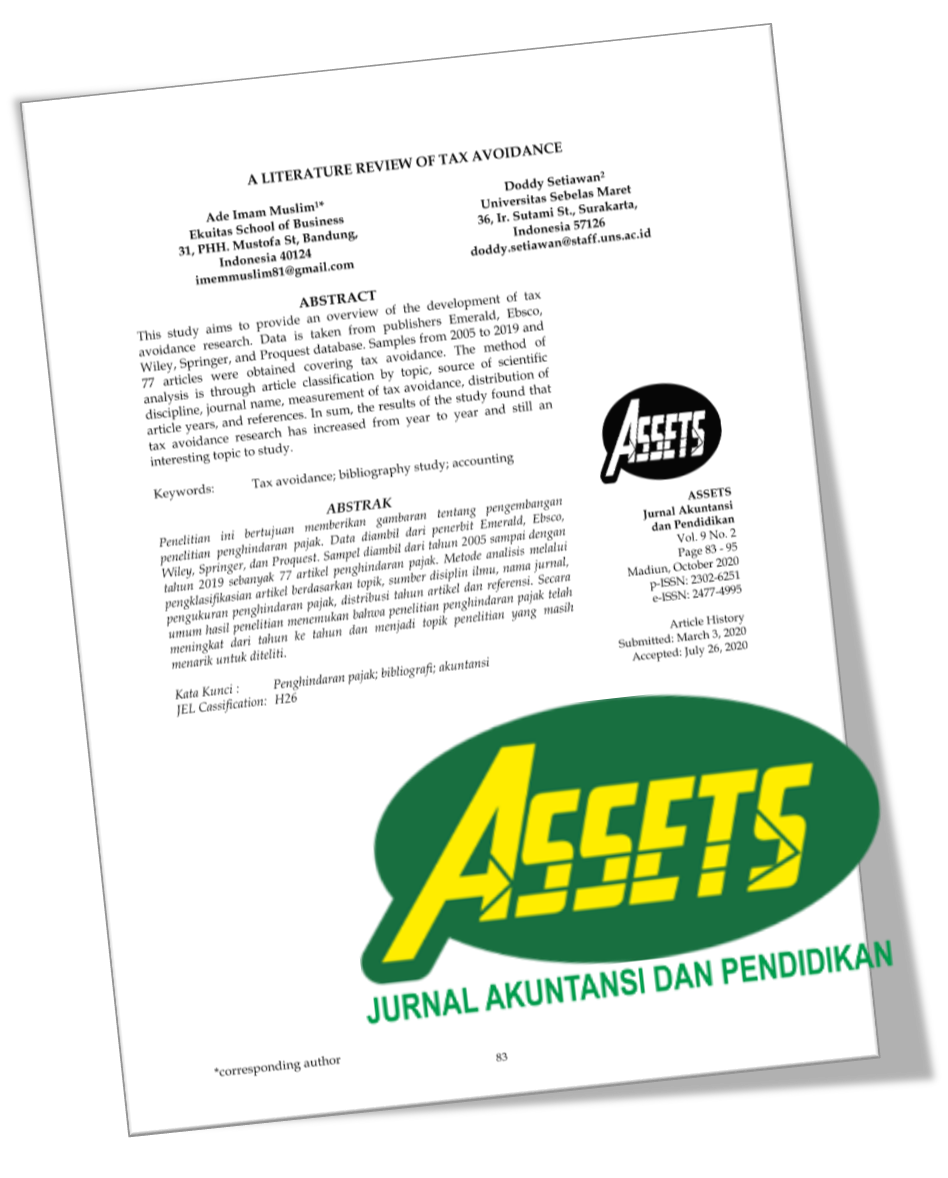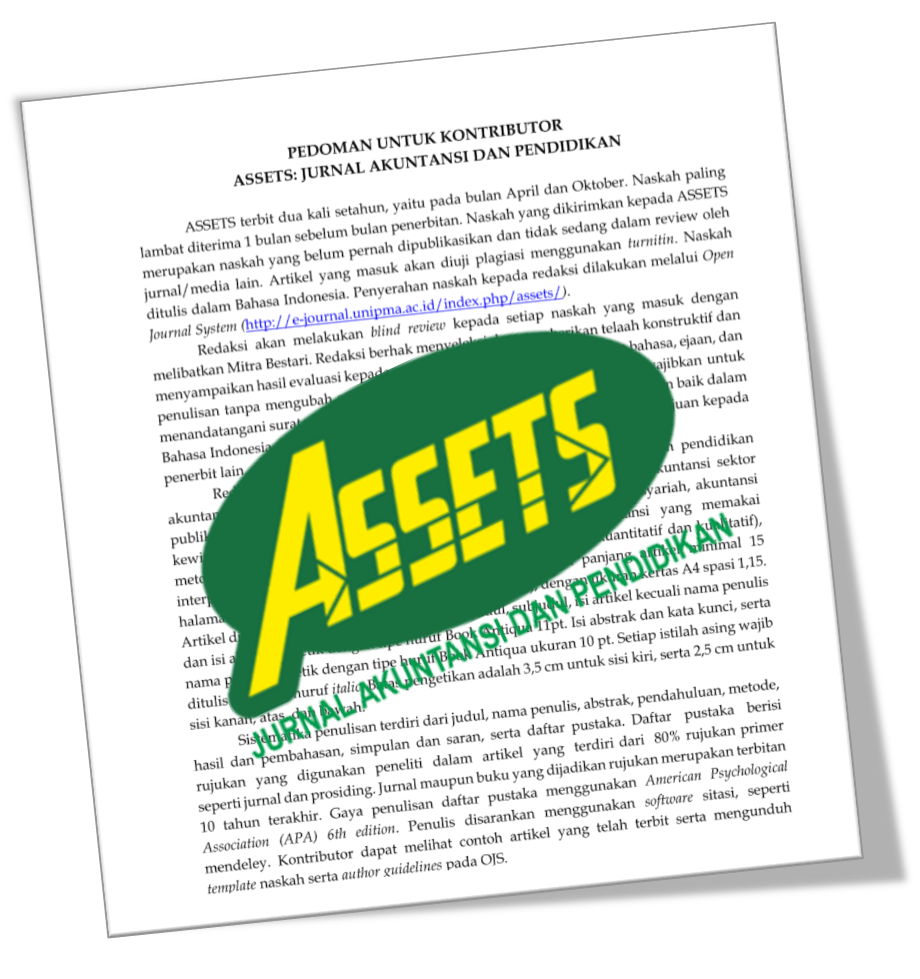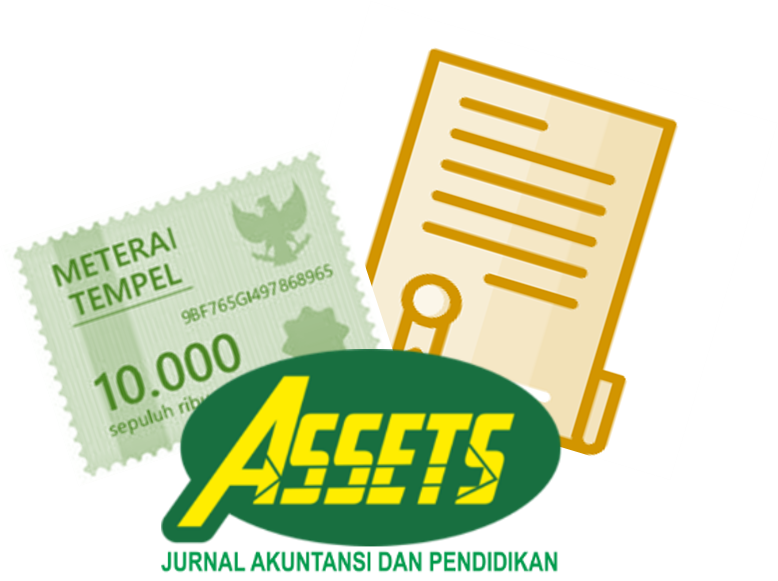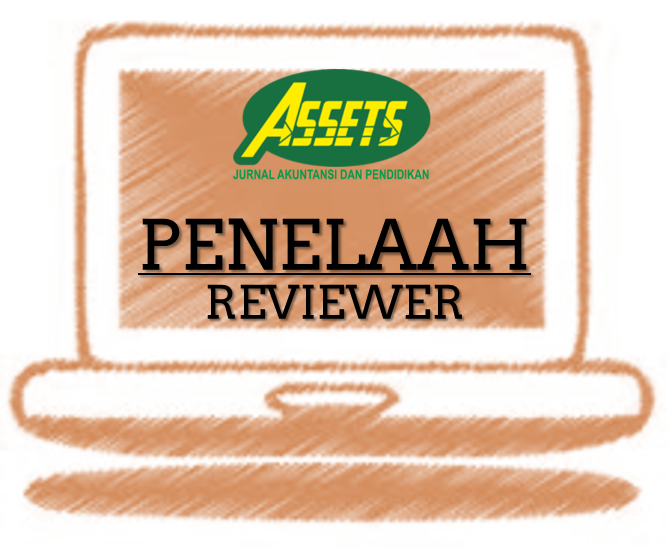EVOLVING OF ACCURATE ONLINE PURCHASING MODULE TO IMPROVE STUDENTS' LEARNING OUTCOMES
DOI:
https://doi.org/10.25273/jap.v13i1.19389Keywords:
Teaching module, Purchase cycle, Accurate online, Trading company, Learning outcomes, Modul pengajaran, Siklus pembelian, Perusahaan dagang, Hasil belajarAbstract
ABSTRACT
The objectives of this research are (1) the procedure for developing an Accurate Online purchasing module, (2) the quality level of the Accurate Online purchasing module, and (3) the level of effectiveness of the Accurate Online purchasing module. The method used for research and development is Accurate Online Borg & Gall procedure, which is modified into seven stages. The subjects in this research were Accounting Education students at the Universitas PGRI Madiun. Data collection techniques are observation, interview, questionnaires, documentation, and test results. Data processing is done using SPSS. The primary product field test uses a nonequivalent control group design. Student learning test results were analyzed using the Mann-Whitney test. The results of this research indicate that the scientific-based Accurate Online purchasing module that has been developed is declared valid, practical, and effective in improving student learning outcomes.
ABSTRAK
Tujuan penelitian ini adalah (1) prosedur pengembangan modul pembelian Accurate Online, (2) tingkat kualitas modul pembelian Accurate Online, dan (3) tingkat efektivitas modul pembelian Accurate Online. Metode penelitian dan pengembangan yang digunakan sesuai dengan prosedur Borg & Gall yang dimodifikasi menjadi tujuh tahap. Subyek dalam penelitian ini adalah mahasiswa Pendidikan Akuntansi Universitas PGRI Madiun. Teknik pengumpulan datanya adalah observasi, wawancara, angket, dokumentasi, dan hasil tes. Pengolahan data dilakukan dengan menggunakan SPSS. Uji lapangan produk utama menggunakan desain kelompok kontrol nonekuivalen. Analisis tes hasil belajar siswa dianalisis dengan menggunakan uji Mann-Whitney. Hasil penelitian menunjukkan bahwa modul pembelian Accurate Online berbasis saintifik yang dikembangkan dinyatakan valid, praktis, dan efektif dalam meningkatkan hasil belajar siswa.
Downloads
References
Agustina, R., Pertiwi, D. A., & Ardiana, M. (2022). Upgrade Skill Siswa SMK Kadiri Kras dengan Aplikasi Accurate. Bima Abdi: Jurnal Pengabdian Masyarakat, 2(1), 105–112. https://doi.org/10.53299/bajpm.v2i1.142
Duda, H. J., Susilo, H., & Newcombe, P. (2019). Enhancing different ethnicity science process skills: Problem-based learning through practicum and authentic assessment. International Journal of Instruction, 12(1), 1207–1222. https://doi.org/10.29333/iji.2019.12177a
Erawanto, U., & Santoso, E. (2016). Pengembangan Modul Pembelajaran Berbasis Masalah Untuk Membantu Meningkatkan Berfikir Kreatif Mahasiswa. JINoP (Jurnal Inovasi Pembelajaran), 2(2), 427–436. https://doi.org/10.22219/jinop.v2i2.2629
Firman, B., & Murtini, W. (2018). The Effectiveness of The Scientific Approach to Improve Student Learning Outcomes. International Journal of Active Learning, 3(2), 86–91. https://doi.org/10.15294/ijal.v3i2.13003
Grabs, J., & Carodenuto, S. L. (2021). Traders as sustainability governance actors in global food supply chains: A research agenda. Business Strategy and the Environment, 30(2), 1314–1332. https://doi.org/10.1002/bse.2686
Ilham, R. N., Erlina, Fachrudin, K. A., Silalahi, A. S., Saputra, J., & Albra, W. (2019). Investigation of the bitcoin effects on the country revenues via virtual tax transactions for purchasing management. International Journal of Supply Chain Management, 8(6), 737–740. https://doi.org/https://doi.org/10.59160/ijscm.v8i6.4062
Istuningsih, W., Baedhowi, & Sangka, K. B. (2018). The Effectiveness of Scientific Approach Using E-Module Based on Learning Cycle 7E to Improve Students Learning Outcome. International Journal of Educational Research Review, 03(03), 75–85. https://doi.org/10.24331/ijere.449313
Kardoyo, Nurkhin, A., Muhsin, & Pramusinto, H. (2020). Problem-based learning strategy: Its impact on students’ critical and creative thinking skills. European Journal of Educational Research, 9(3), 1141–1150. https://doi.org/10.12973/EU-JER.9.3.1141
Lilik, S. H., & Rusno, R. (2019). Development of accounting learning module using scientific approach through interactive video. Annual Applied Science and Engineering Conference, 1402(6), 1–5. https://doi.org/10.1088/1742-6596/1402/6/066092
Lubis, H. Z., & Ismaya, N. (2020). Pengembangan Bahan Ajar Akuntansi Untuk Meningkatkan Kualitas Pembelajaran Di Kelas. Liabilities (Jurnal Pendidikan Akuntansi), 3(3), 206–215. https://doi.org/10.30596/liabilities.v3i3.6173
Masgumelar, N. K., & Mustafa, P. S. (2021). Teori Belajar Konstruktivisme dan Implikasinya dalam Pendidikan dan Pembelajaran. GHAITSA: Islamic Education Journal, 2(1), 49–57. https://siducat.org/index.php/ghaitsa/article/view/188
Muhajirah. (2020). Basic of Learning Theory (Behaviorism, Cognitivism, Constructivism, and Humanism). IJAE (International Journal of Asian Education), 1(1), 37–42. https://doi.org/10.46966/ijae.v1i1.23
Nesri, F. D., & Kristanto, Y. D. (2020). Pengembangan Modul Ajar Berbantuan Teknologi untuk Mengembangkan Kecakapan Abad 21 Siswa. AKSIOMA: Jurnal Program Studi Pendidikan Matematika, 9(3), 480–492. https://doi.org/10.24127/ajpm.v9i3.2925
Nurhadi, Nurhasnawati, & Nursalim. (2022). Pengembangan E-Modul Berbasis Discovery Learning Untuk Meningkatkan Kemampuan Peserta Didik Mata Pelajaran Ips Kelas Vi Di Madrasah Ibtidaiyah Kota Pekanbaru. El-Ibtidaiy: Journal of Primary Education, 5(1), 43–55. https://doi.org/10.24014/ejpe.v5i1.15256
Prastyaningtyas, E. W., & Widiawati, H. S. (2018). Pengembangan Modul Pembelajaran Berbasis Group Investigation Dengan Pendekatan Problem Based Learning Pada Mata Kuliah Sistem Akuntansi Mahasiswa Pendidikan Ekonomi Universitas Nusantara PGRI Kediri. EQUILIBRIUM : Jurnal Ilmiah Ekonomi Dan Pembelajarannya, 6(2), 148–160. https://doi.org/10.25273/equilibrium.v6i2.2935
Pratita, D., Amrina, D. E., & Djahir, Y. (2021). Analisis Kebutuhan Mahasiswa Terhadap Bahan Ajar Sebagai Acuan Untuk Mengembangkan E-Modul Pembelajaran Digital. Jurnal PROFIT: Kajian Pendidikan Ekonomi Dan Ilmu Ekonomi, 8(1), 69–74. https://doi.org/10.36706/jp.v8i1.13129
Purnomo, G. E., & Mubarak, H. (2022). Sistem dan Prosedur Akuntansi Pembelian Persediaan Bahan Baku Sparepart di PT. Bengkalis Dockindo Perkasa. Jurnal IAKP: Inovasi Akuntansi Keuangan & Perpajakan, 3(2), 184–190. https://doi.org/https://doi.org/10.35314/iakp.v3i2.2672
Puspita, A. D., Maryani, I., & Sukma, H. H. (2023). Problem-based science learning in elementary schools: A bibliometric analysis. Journal of Education and Learning (EduLearn), 17(2), 285–293. https://doi.org/10.11591/edulearn.v17i2.20856
Puspita, E., Astuti, P., Kurniawan, A., Widiawati, H. S., Linawati, & Nurdiwaty, D. (2021). Peningkatan Soft Skill Siswa SMK PGRI Kediri Melalui Pelatihan Zahir Accounting. BERDAYA: Jurnal Pendidikan Dan Pengabdian Kepada Masyarakat, 3(3), 103–110. https://doi.org/10.36407/berdaya.v3i3.453
Rahmat, M., Arip, A. G., & Nur, S. H. (2020). Implementation of Problem-Based Learning Model Assisted by E-Modules on Students' Critical Thinking Ability. JPI (Jurnal Pendidikan Indonesia), 9(3), 339–346. https://doi.org/10.23887/jpi-undiksha.v9i3.22410
Riduwan, R. (2016). Skala Pengukuran Variabel-Variabel Penelitian. Alfabeta.
Risman, A., & Santoso, S. (2019). Development of Guided Inquiry-Based Accounting Learning Module to Improve Students’ Learning Outcomes in State Vocational High School 1 Karanganyar. International Journal of Multicultural and Multireligious Understanding, 6(2), 846–850. https://doi.org/10.18415/ijmmu.v6i2.946
Septora, R. (2017). Pengembangan Modul dengan Menggunakan Pendekatan Saintifik pada Kelas X sekolah Menengah Atas. Jurnal Lentera Pendidikan Pusat Penelitian LPPM UM METRO, 2(1), 86–98. http://dx.doi.org/10.24127/jlplppm.v2i1.494
Sitorus, D. S., Siswandari, & Kristiani. (2019). The Effectiveness Of Accounting E-Module Integrated With Character Value To Improve Students’ Learning Outcomes and Honesty. Cakrawala Pendidikan, 38(1), 120–129. https://doi.org/10.21831/cp.v38i1.20878
Suvi. (2021). Penyediaan Bahan Ajar Digital Praktik Akuntansi : Jasa, Dagang & Manufaktur Kelas XII. Conference on Community Engagement Project, 1(1), 2653–2659. https://journal.uib.ac.id/index.php/concept/article/view/4941
Suyono, A., & Wijaya, P. A. (2021). Pengembangan Media Pembelajaran Komputer Akuntansi Berbentuk Modul Pembelajaran Digital. PeKA: Jurnal Pendidikan Ekonomi, 9(1), 8–16. https://doi.org/https://doi.org/10.25299/peka.2021.vol9(1).7506
Vina, S., Sunaryo, Raihanati, Astra, I. M., & Sari, I. J. (2018). Development of E-Module Based on Problem Based Learning (PBL) on Heat and Temperature to Improve Student’s Science Process Skill. TOJET: The Turkish Online Journal of Educational Technology, 17(3), 26–36.
Wardoyo, C. (2016). Developing Learning Media Based on E-Learning on Accounting Subject for Senior High School Students. Dinamika Pendidikan, 11(2), 84–93. https://doi.org/10.15294/dp.v11i2.8932
Yulastri, A., Hidayat, H., Ganefri, Islami, S., & Edya, F. (2020). Developing an Entrepreneurship Module by Using Product-Based Learning Approach in Vocational Education. International Journal Of Environmental & Science Education, 12(5), 1097–1109.
Yusdita, E. E., Astuti, E., Panjawiyati, T., Anggarini, A. G., & Dilaines, L. E. (2022). Peluang Dan Tantangan Dalam Penelitian Pengembangan Buku Ajar Komputer Akuntansi. Refleksi: Jurnal Riset Dan Pendidikan, 1(1), 1–8. https://doi.org/10.25273/refleksi.v1i1.13899
Downloads
Published
Issue
Section
License
Copyright (c) 2024 Tika Panjawiyati, Elly Astuti & Elana Era Yusdita

This work is licensed under a Creative Commons Attribution-ShareAlike 4.0 International License.
Perjanjian Lisensi dan Hak Cipta
Saat mengirimkan naskah ke jurnal, penulis menyatakan bahwa:
- Mereka diberi wewenang oleh rekan penulisnya untuk masuk ke dalam perjanjian ini.
- Karya yang dimaksud belum pernah diterbitkan secara resmi sebelumnya, kecuali dalam bentuk abstrak atau sebagai bagian dari kuliah, resensi, tesis, atau overlay jurnal yang diterbitkan.
- Karya yang dimaksud tidak sedang dipertimbangkan untuk diterbitkan di tempat lain,
- Publikasi karya yang dimaksud telah disetujui oleh semua penulis dan oleh otoritas yang bertanggung jawab - secara tahu sama tahu atau eksplisit - dari lembaga tempat pekerjaan itu dilakukan.
- Mereka mengamankan hak untuk mereproduksi materi apa pun yang telah diterbitkan atau dilindungi hak cipta di tempat lain.
- Mereka menyetujui lisensi dan perjanjian hak cipta berikut.
Hak Cipta
Penulis yang menerbitkan dengan ASSETS: Jurnal Akuntansi dan Pendidikan menyetujui persyaratan berikut:
- Penulis mempertahankan hak cipta dan memberikan jurnal hak publikasi pertama dengan karya yang secara bersamaan dilisensikan di bawah Lisensi Atribusi Creative Commons (CC BY-SA 4.0) yang memungkinkan orang lain untuk berbagi karya dengan pengakuan kepenulisan karya dan publikasi awal di jurnal ini.
- Penulis dapat masuk ke dalam pengaturan kontrak tambahan yang terpisah untuk distribusi non-eksklusif dari versi jurnal yang diterbitkan dari karya tersebut (misalnya, mempostingnya ke repositori institusional atau menerbitkannya dalam sebuah buku), dengan pengakuan publikasi awalnya di jurnal ini.
- Penulis diizinkan dan didorong untuk memposting karya mereka secara daring (misalnya di repositori institusional atau di situs web mereka) sebelum dan selama proses pengiriman, karena dapat menghasilkan pertukaran yang produktif, serta kutipan lebih awal dan lebih besar dari karya yang diterbitkan.
License and Copyright Agreement
In submitting the manuscript to the journal, the authors certify that:
- Their co-authors authorize them to enter into these arrangements.
- The work described has not been formally published before, except as an abstract or part of a published lecture, review, thesis, or overlay journal.
- That it is not under consideration for publication elsewhere,
- That its publication has been approved by all the author(s) and by the responsible authorities – tacitly or explicitly – of the institutes where the work has been carried out.
- They secure the right to reproduce any material already published or copyrighted elsewhere.
- They agree to the following license and copyright agreement.
Copyright
Authors who publish with ASSETS: Jurnal Akuntansi dan Pendidikan agree to the following terms:
- Authors retain copyright and grant the journal right of first publication with the work simultaneously licensed under a Creative Commons Attribution License (CC BY-SA 4.0) that allows others to share the work with an acknowledgment of the work's authorship and initial publication in this journal.
- Authors can enter into separate, additional contractual arrangements for the non-exclusive distribution of the journal's published version of the work (e.g., post it to an institutional repository or publish it in a book), with an acknowledgment of its initial publication in this journal.
- Authors are permitted and encouraged to post their work online (e.g., in institutional repositories or on their website) before and during submission, as it can lead to productive exchanges and earlier and more extraordinary citations of published work.

ASSETS: Jurnal Akuntansi dan Pendidikan is licensed under a Creative Commons Attribution-ShareAlike 4.0 International License.










